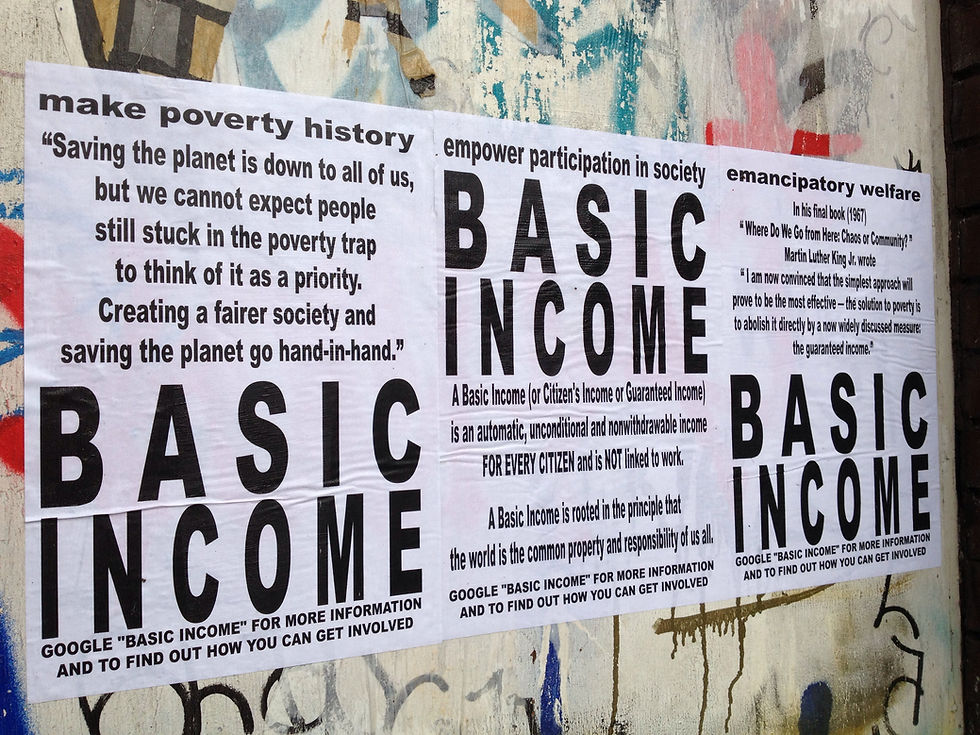The Calamities of a COVID Christmas
- Amia Augsburger

- Dec 21, 2020
- 4 min read
Updated: Dec 23, 2024
On the final Monday before Christmas Day, the UK was rudely awoken to the temporary closure of the French border: a disaster for desperate shoppers panicking to purchase Christmas dinner. Many consequently flocked to shops in the early hours of December 21st, in order to panic-buy and stockpile goods, following the warning that supermarkets are at risk of shortages. Hundreds of lorries are currently being held up at the Port of Dover.
The French government decided to close their border on Sunday evening to prevent the spread of the new variant of COVID-19 coming from the UK. Goods thought to have faced shortages included many fresh items, like citrus fruits and vegetables, vital for many in the curation of the perfect Christmas dinner. This news is compounded with stricter restrictions on many citizens, many of which were placed in Tier 4 in the early hours of December 20th. Amid this chaos, the French government have confirmed that they will establish a protocol “to ensure movement from the UK can resume”. Meanwhile, neighbouring countries like Germany and Switzerland have suspended flights to the UK.

Information has just surfaced that President Macron has given a conditional offer to open the border, but insists that lorry drivers must have a confirmed negative test upon arrival, making it incredibly difficult to resume services at their usual speed. He also argues that “no trucker wants to deliver” to a “plagued” country. Around 10,000 lorries a day travel through Dover, accounting for around 20 percent of goods bought and sold in the UK. These ports have no toilets or facilities, so drivers waiting up to 72-hours for a negative COVID-19 test are unlikely to want to deliver to the UK.
The new variant of COVID-19 was detected in September. The WHO (World Health Organisation) has been in “close contact” with UK officials over the unforeseen appearance of a new variant of coronavirus. On December 19th, Prime Minister Boris Johnson held a national press conference, addressing the major concern of Christmas. He noted that coronavirus was “spreading more rapidly” and was being “driven by a new variant”. However, according to a discovery by ‘Nerve Tag’ (New and Emerging Respiratory Virus Threats Advisory Group), there was “no evidence” to suggest that it caused more “severe illness or higher mortality”, only that it was likely it was “70% more transmissible” than the previous variants.
England’s Chief Medical Officer, Professor Chris Whitty, explained that such a development is “going to make things a lot worse”, but hinted that “optimistic things” are ahead “assuming vaccine works against this”. The WHO told the BBC that the same variants have also been discovered in the Netherlands, Denmark and Australia, with Catherine Smallwood, WHO’s emergency senior officer for Europe, confirming that variants in several regions elsewhere “carry some of the genetic changes seen in the UK”
In a year which has been unlike no other in recent history, the notion of Christmas with the family has kept morale up for millions. The joyous celebrations of Christmas Day, a day where families come together in union and love, have been irrevocably changed. Arguably for some, the stress of Christmas shopping combined with the typical ailments of winter tantamount to a perfectly anxiety-ridden storm have been eliminated by the new restrictions. However, The Welsh Police Federation has warned that such boundaries will put police officers in “difficult” situations if people break the rules to see friends and family members.
Family traditions and jollity had initially been promised to resume as normally as possible, as not to “cancel Christmas”. Nonetheless, Johnson urged people to “think hard and in detail” before committing any plans to see elderly relatives. This was almost immediately vetoed for London and the South-East of England, as he placed citizens living in these regions in Tier 4: a tier which is similar to the restrictions placed on the UK nationally on March 23.
Those living in Tier 4 will only have essential shops open, and will see travel banned except for those visiting ‘support bubbles’. Reports are already showing that rebels in Tier 4 areas have attempted to travel between regions with Tier 2 guidelines. Meanwhile, other areas in the North of England under Tier 3 restrictions are allowed no more than two households in their homes on Christmas Day. The tougher Tier 4 measures make no exceptions for Christmas Day, with the “stay at home” message implemented until review on December 31.
The UK faces more uncertainty now than ever: ongoing Brexit negotiations stagnated by lack of agreement and cooperation from both sides have been only worsened by a plummeting economy induced by the fatality of Covid-19. This has led to the FTSE 100 falling by -2.75 per cent, mostly due to the French government deciding temporarily to close their borders to the UK.
The prime minister hosted an emergency meeting, known as a COBRA meeting, this afternoon to avert Christmas shortages of stocks and COVID-19 vaccines. The government is also hoping to quickly implement testing at borders. In the subsequent Downing Street conference, Johnson reassured Brits that the "vast majority" of food and medicine will not be affected by Dover's delays. He continued, "It is vital first to stress that these delays - which are only occurring at Dover - only affect human-handled freight, and that is only 20% of the total arriving from or departing to the European continent."
A growing number of countries have closed their borders to the UK, due to fears of a new coronavirus variant, now including Russia and India. Nevertheless, the UK has been criticised for its lack of immediate action concerning the new variant. Professor Hayward said that the UK “should be taking action to prevent international travel”, as it “would be the responsible thing to do.”

_edited.png)



Comments